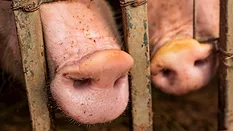
Inspection
Inspections cover many areas of food and beverage production, from farms and ranches to food processing facilities to restaurants. Inspectors are trained to ensure that facilities and equipment are in proper working order and properly sanitized, maintained, and permitted.
Articles
More ArticlesNever miss the latest news and trends driving the food safety industry
Newsletters | Website | eMagazine
JOIN TODAY!Copyright ©2026. All Rights Reserved BNP Media.
Design, CMS, Hosting & Web Development :: ePublishing



